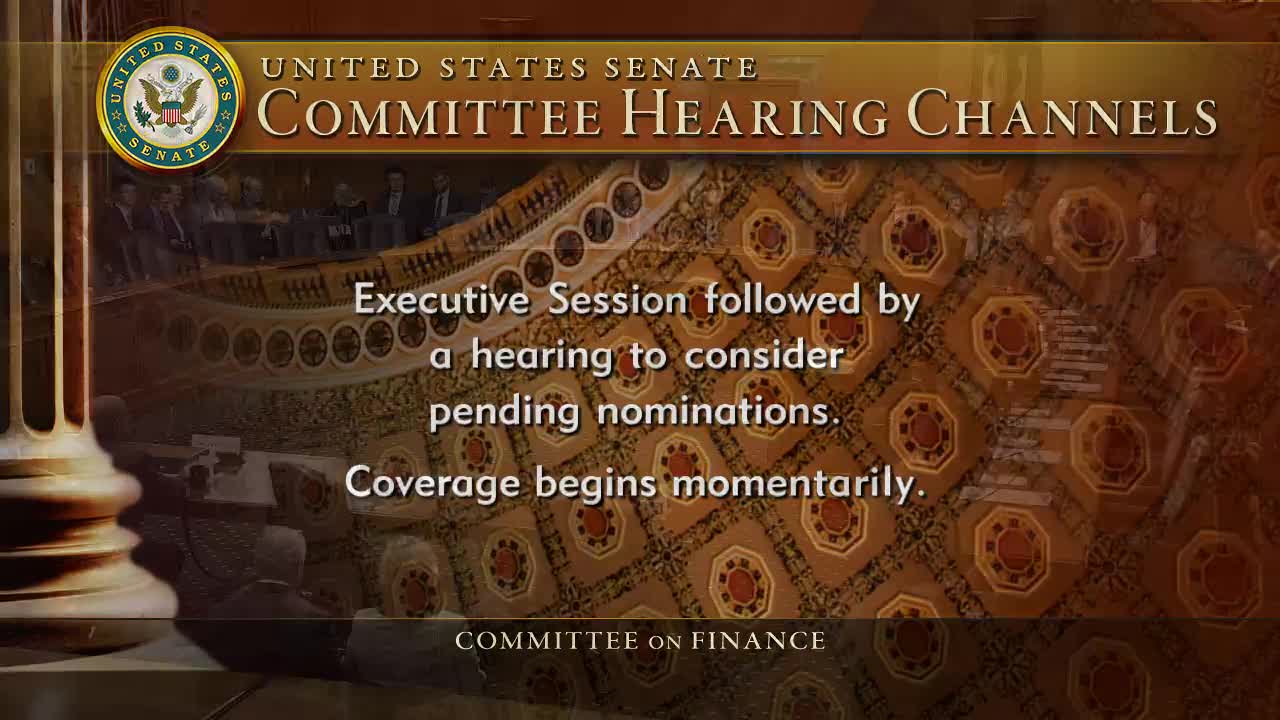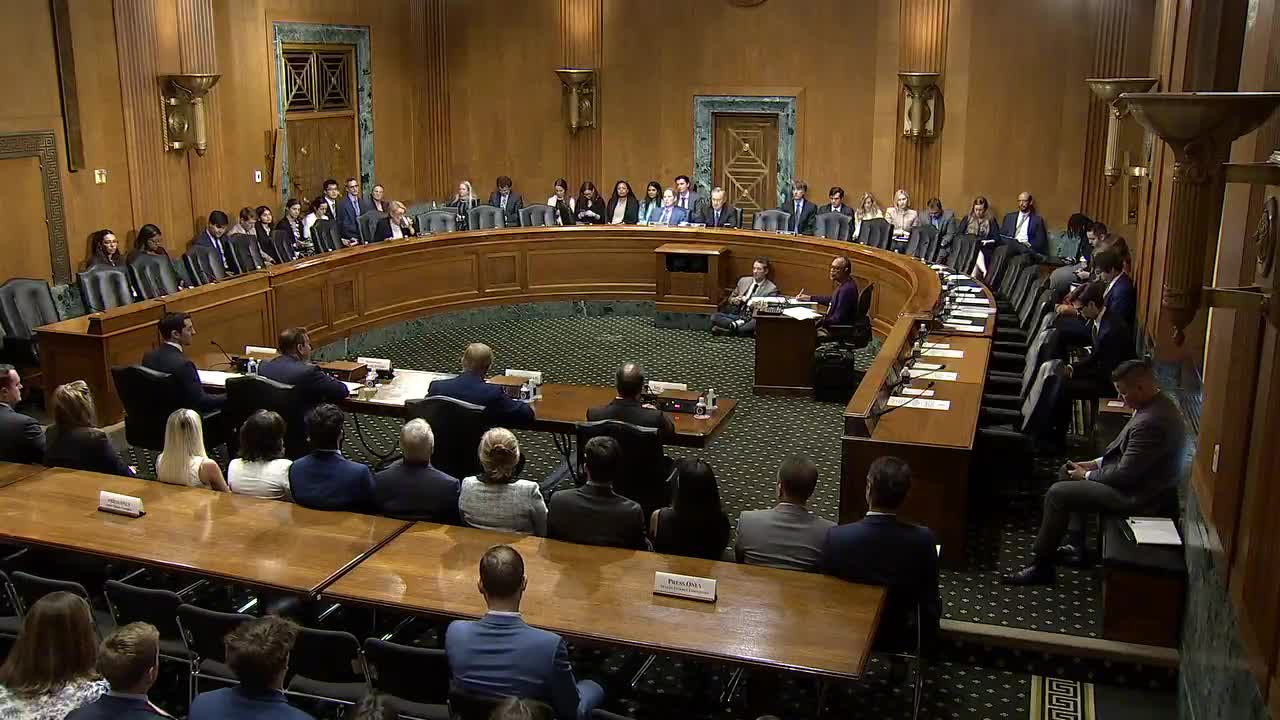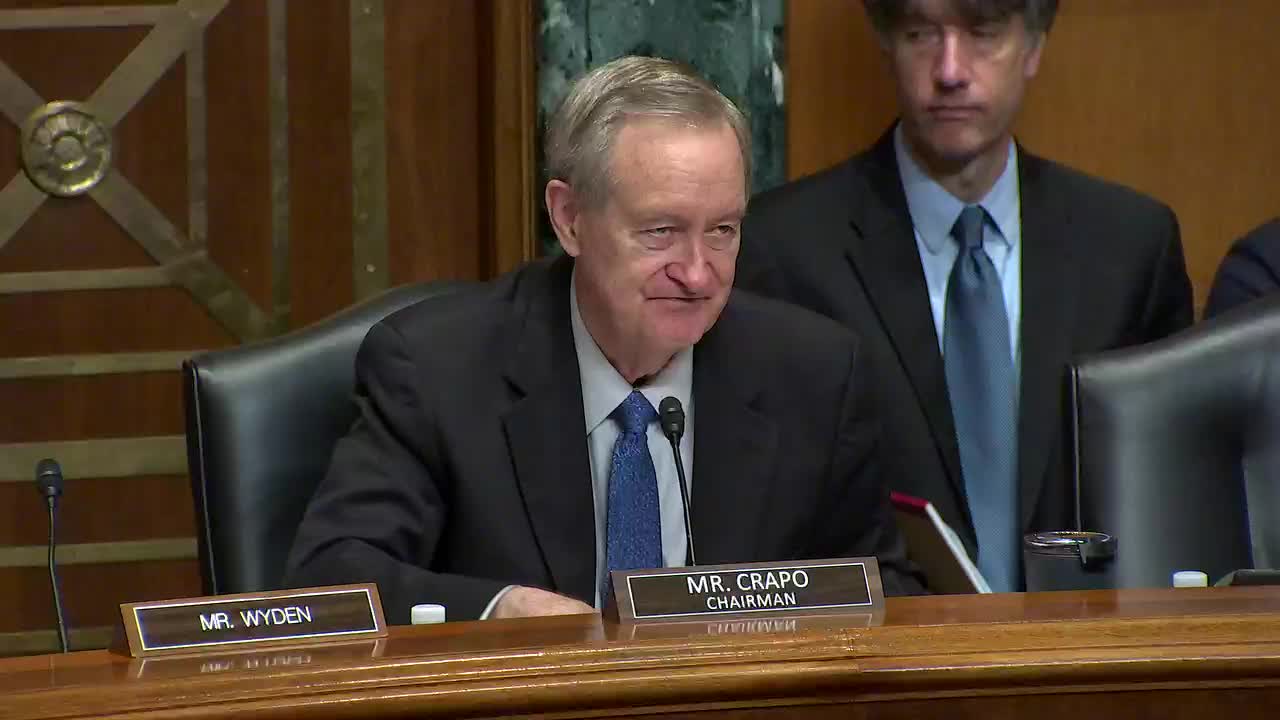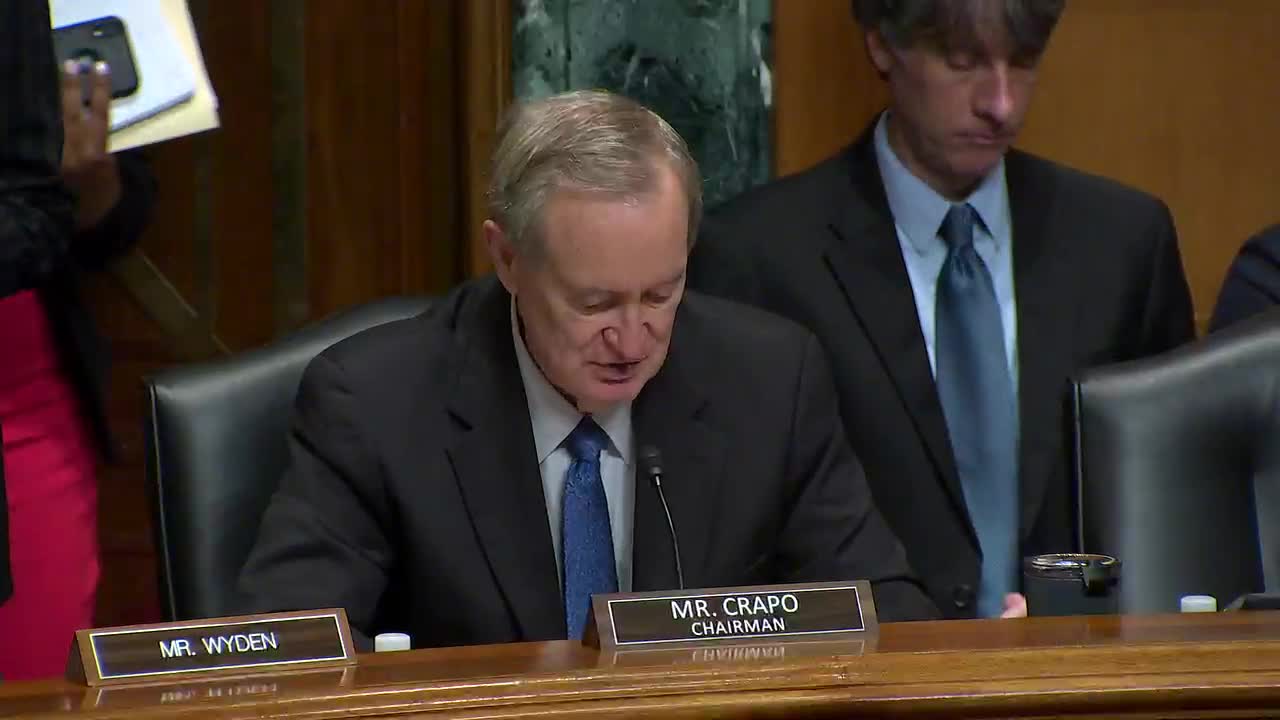Article not found
This article is no longer available. But don't worry—we've gathered other articles that discuss the same topic.

Finance Committee previews votes on McKernan and Adams; Wyden voices opposition to Adams

Treasury deputy‑undersecretary nominee pledges cooperation on implementing recent tax law

Nominee for deputy U.S. trade representative outlines tough stance on China, intellectual property

